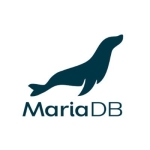What is our primary use case?
We use it in order-placing and in the IBD integration, integrated business planning for forecast, and demand planning. I'm working in the sales and operation department. I'm not working in finance or production. Maybe the other teams are using it differently, or they're using different modules, however, for us at sales and operation, we are using it to place orders, developer CAST, track reports, and ensure accuracy.
How has it helped my organization?
It's made everything faster. The best thing we have is a faster operation. Even the reports are being generated very fast versus before. Before, we used to have an older version of SAP, and once we migrated or upgraded the old system to the current system, the speed of the work totally changed.
What is most valuable?
The integration is quite good. It's like an add-on in which we add the tools we need, like Excel.
We're not using the interface with SAP HANA itself. However, we're using a remote access link which we access via the web, and we are also using an add-on, which is installed in our Microsoft Excel program. Therefore, we are not particularly using the SAP HANA environment. We don't have this desktop interface in front of us. As far as I know, this is the engine behind all our work.
The setup is easy.
When we upgraded, we received more functions or more features. I am not aware of all of them; however, I've received positive feedback from the users in our company.
It's a stable product.
The solution scales well.
What needs improvement?
The pricing could be better. Finding the solution or adding some additional features that are customized for what we need is difficult. It costs a lot of money. For example, our office has SAP HANA, and the Saudi distributor has SAP, or at least, another version. We are trying now to integrate the two systems together. However, the cost is too much. We'd like to see more integration capabilities.
It does take a while to set up.
For how long have I used the solution?
I've been using the solution for a year and a half.
What do I think about the stability of the solution?
The solution is reliable and quite stable. The performance is good. There are no bogs or glitches. It doesn't crash or freeze.
What do I think about the scalability of the solution?
It can scale.
We have about 2,500 employees. Not everyone is using it. Some are in the factory, and some are in the office. Some are at specific branches. We are an international multinational company, our head office is in Italy, and we have branches worldwide.
How are customer service and support?
We haven't had any critical issues. However, we have received good support overall. We haven't really dealt with any downtime. It's very rare. It might have only happened once.
How would you rate customer service and support?
Which solution did I use previously and why did I switch?
Currently, we are doing some integration between SAP and some other tools like Power BI and Tableau. We have some customized solutions developed in-house. We used to use an older version of SAP and upgraded it.
When I worked at a different company, I used to work with Dynamic Business Solutions, not SAP HANA.
How was the initial setup?
It was an easy setup. That said, the implementation takes some time. They spent two or three months just developing the requirements and they gathered from us what we need to do. Then they implement it in two or three months. I don't know if this is a long period or a short period, however, that is how long it took for us.
I'm not sure how deployment and maintenance are handled. I'm not sure how many people are involved in those aspects of the product.
What about the implementation team?
We invited a third party to do the implementation.
Our team did the wishlist, the comments, and we shared it with a third party, and this third party came on-site, and they finished the job.
What was our ROI?
I'm not sure of the exact numbers surrounding ROI. They may have done a study and chosen the solution based on ROI. However, I was not a part of that process.
What's my experience with pricing, setup cost, and licensing?
We are spending about 20,000 to 30,000 euros on the solution. It is a one-time implementation. To integrate everything and do the gap analysis, and then implement all of that as per our requirements, that cost us too much money.
What other advice do I have?
We're a potential SAP partner.
We are using SAP HANA in Italy. We're using the latest version there. That said, in Saudi Arabia, we are not using SAP HANA. They're using the older version.
We have remote access.
I'd recommend the solution to others. SAP is a very powerful tool.
I would rate it nine out of ten.
Disclosure: My company has a business relationship with this vendor other than being a customer.
















